A circle of friendship - making wishes come true
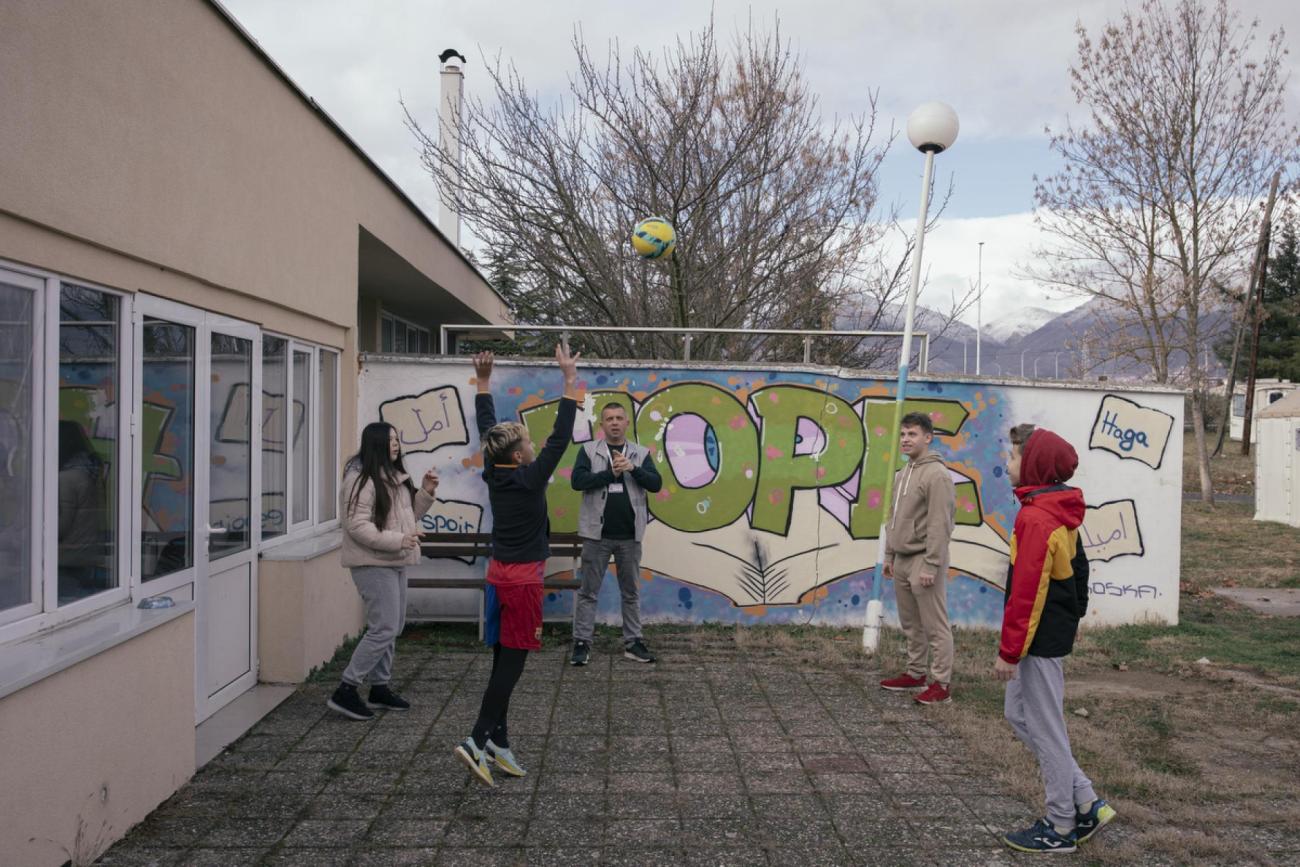
A story from Vranje Asylum Centre
Vranje, Serbia, January 2023 – Evgenia left her native Kyiv with her six-year-old daughter Sasha, just a few weeks before the war in Ukraine started. It has been more than a year since then, but her eyes fill with tears when she recalls how worried she was, fearing for the life of her 17-year-old son. Dmitri stayed in Ukraine because he was a couple of months away from finishing school. It was difficult, Evgenia struggles to talk about her experience and fears.
They found refuge from war and uncertainty in the Asylum Centre in Vranje, a city in Southern Serbia. They are safe, Evgenia says, but sometimes time passes by too slowly. Sasha starting primary school in Vranje was the first sign that things are back on track. Dmitri started helping in a car repair shop. But what made the biggest difference were the workshops and support programmes in the Centre, during which they can socialize, learn, acquire skills, and receive the necessary support. Both children and adults. Together.
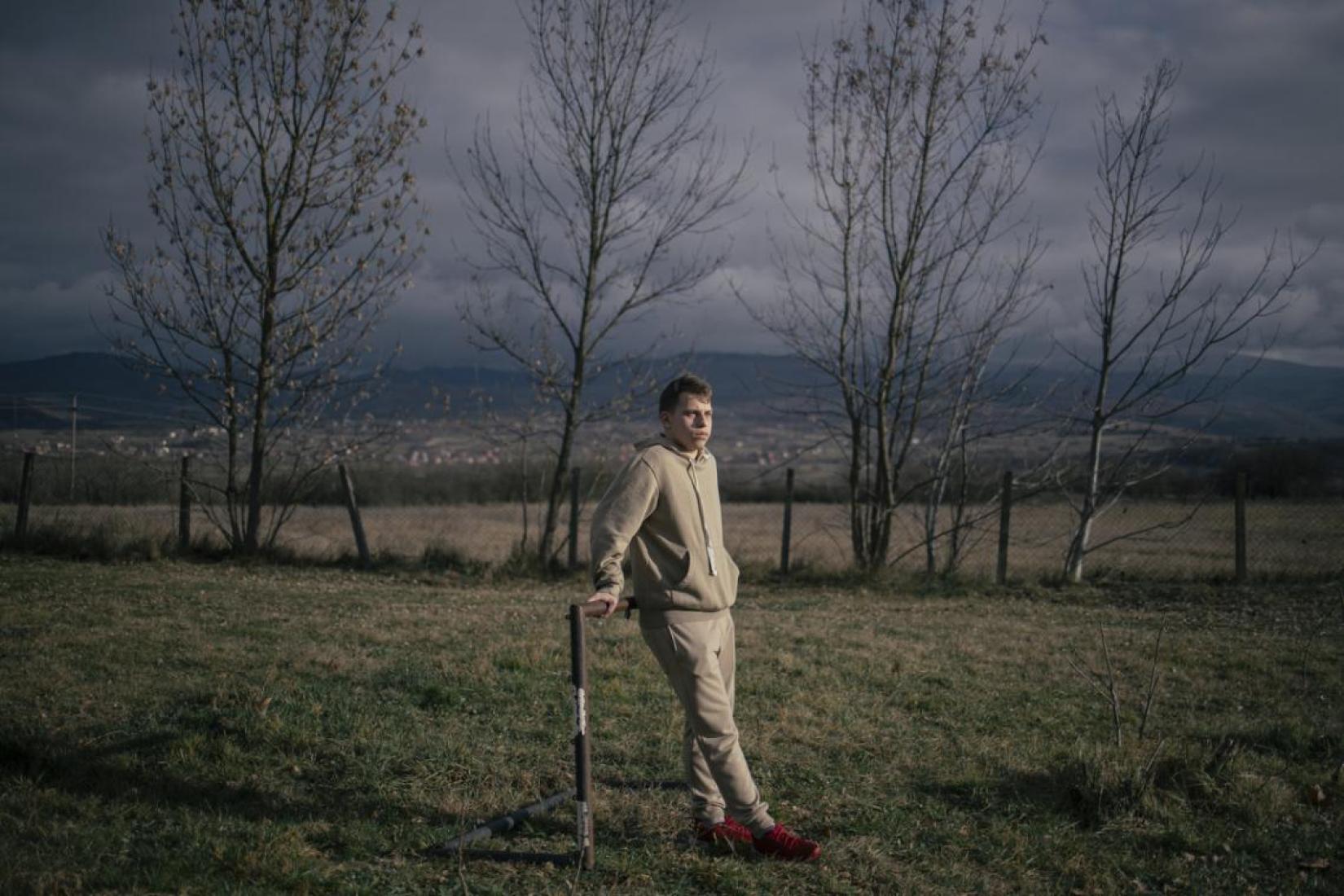
“At one of the workshops I learned how to sew,” Evgenia is proud. “I made dresses for myself and my daughter. We had a fashion show, where everyone presented their creations. We also learned how to do a manicure, we practice yoga, we do various things. Workshops mean a lot to me, because they give me something to do, to fill my time.”
When it’s time for the psychosocial support workshop, the space reserved for activities in the Asylum Centre in Vranje is filled with laughter and song. Children and parents, facilitators, and the interpreter, hold hands and stand in a big circle. They made a smaller circle in the middle out of paper. That’s a wishing well into which they shout their wishes. Most importantly – for the war to end.
In addition to Evgenia, Sasha and Dmitri, there are 80 more refugees from Ukraine at the Centre. 27 of them are children. Due to their war-induced trauma, psychosocial support through group and individual work is the most important activity. It is implemented by the Danish Refugee Council in partnership with UNICEF.
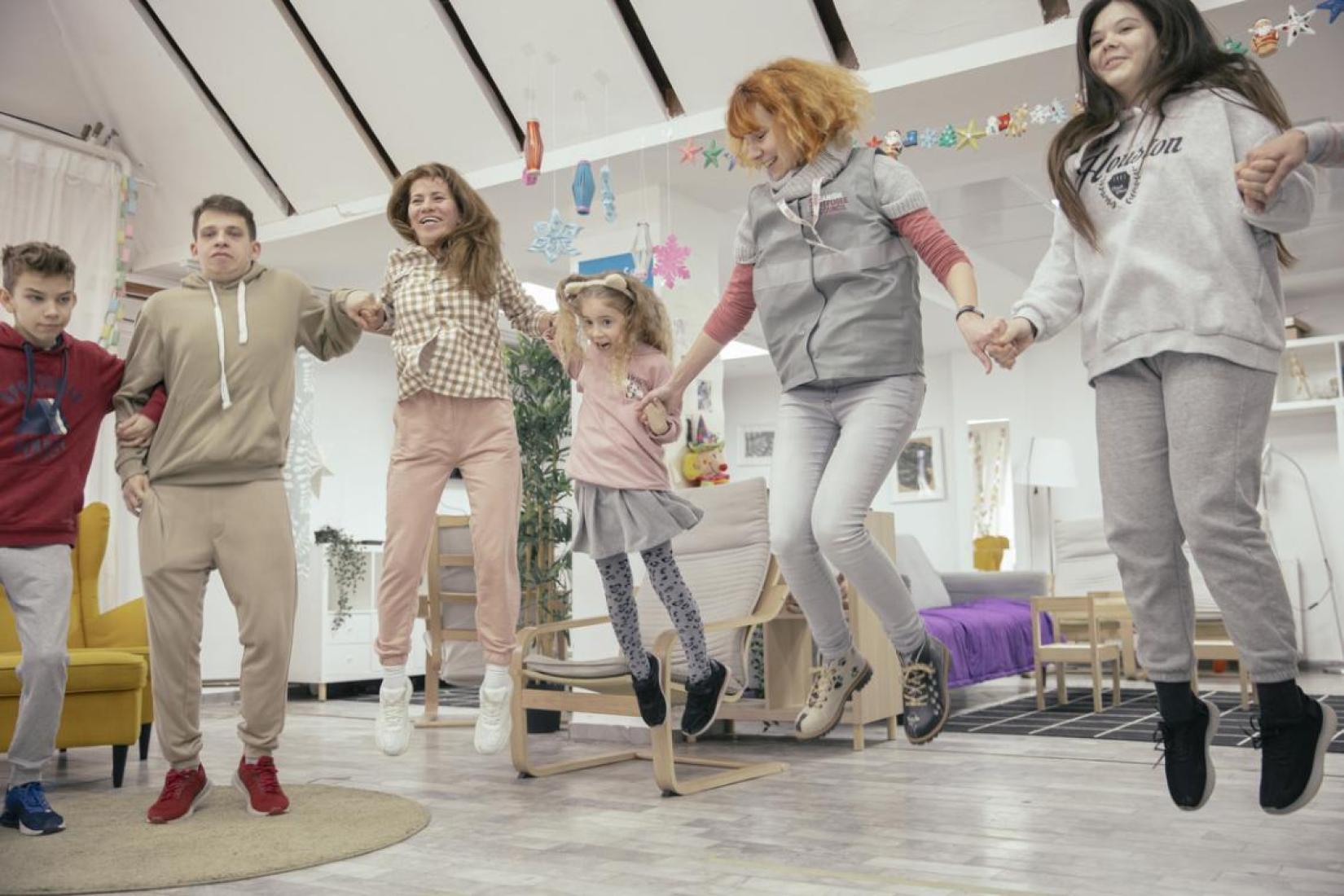
Psychosocial support is very important for all children, and especially for those who are in a challenging situation such as refugee children. Support is provided through direct work and through various workshops. When facilitators get to know the children through such work, they can then work individually with them and help each child, according to their specific needs,” explains Djenka Mihajlovic Medic from the Danish Refugee Council.
The project implemented in partnership with UNICEF also includes early childhood development workshops for children up to the age of five. The workshops aiming to raise awareness among women about protection from and prevention of gender-based violence also have high attendance rates. Moreover, families with children received cash cards, the amounts varied according to the number of family members. Children receive free textbooks.
Educational, creative, and recreational workshops are organized in the Asylum Centre in Vranje.
"When we’re with a group of children of different ages, we always pick an activity that will be interesting for everyone. And that’s always the creative and recreational ones. But we get the best results when we work with different age groups separately. Everyone is included that way and that way we know the programme is adapted to them. And they feel good because in these groups, the children are always of similar or the same age. Adapting also means constantly talking to children and considering their needs, what they would like to do and preparing activities based on that,” says Ivana Milanovic from the Commissariat for Refugees and Migrations.
At the psychosocial support workshop, 18-year-old Dmitri shouts into the wishing well what his biggest childhood dream was – getting a red sports car. He has been in love with cars ever since he was a little boy, and in Vranje his dream came true – he is learning how to repair them. He helps out in a local car repair shop in Vranje.
“Since I was a boy, my favourite toys were cars. I collected them, and when I got the chance to help out in a car repair shop, it was my childhood dream come true,” Dmitri explains proudly.
His mom Evgenia is pleased that her son has taken the initiative to use his time wisely and learn a trade.
“Dmitri is learning there. He is socializing with other people, learning Serbian, getting to know the mentality, fitting in. We’re extremely pleased,” says Evgenia.
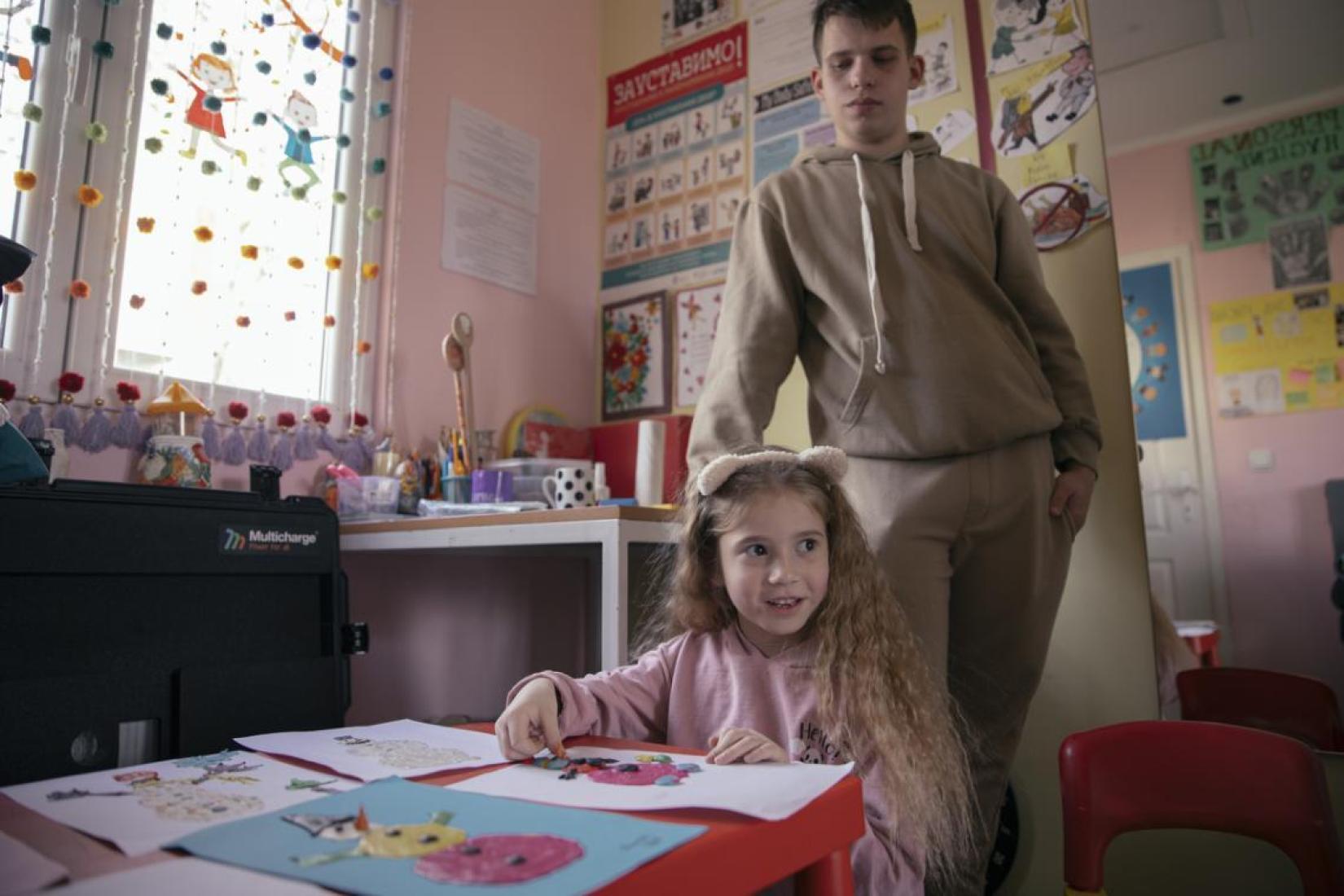
Dmitri is also a member of a team of nine children from Ukraine who were part of UNICEF’s UPSHIFT programme, which is being implemented by the Junior Achievement Serbia organization. At the three-day team competition in Vrnjacka Banja, which gathered children from all over Serbia, they received a special award on the topic of air pollution. With the help of mentors and organizers, they designed a project to plant trees in schools and factories in Vranje. They received financial support, so that, together with children from Vranje, they can turn this idea into reality.
“We designed the project together, so we could reach an agreement with school principals and general managers of factories to get the space to plant trees. We also want to involve all students and teachers, because with more trees, it’ll be easier for all of us to breathe,” explains Dmitri.
Dmitri’s friend, Beatris, was the captain of the UPSHIFT team from Ukraine. She is a first-grade student at the Secondary School of Economics in Vranje and very quickly learned to speak Serbian.
“Already this spring, we should be starting the tree-planting project. In addition, we’d also like the teachers to give a lecture on the importance of air pollution prevention. We would like to convince the general managers of factories in Vranje that reducing environmental pollution is important, because more people will then want to buy their products,” says Beatris.
Russian language teacher Snezana Simic from Vranje supported the UPSHIFT team from Ukraine, as their interpreter.
“The UPSHIFT programme is designed to bring together social entrepreneurship, innovation, and teamwork. All of this is implemented through workshops, where students are empowered to come up with innovative solutions. I think that the implementation of the project will mean a lot to them, because they received a special award and financial support to implement this idea. To get to the final product, they must involve their friends from school, the local community, local self-government, companies. All this will be important for their integration,” this teacher believes.
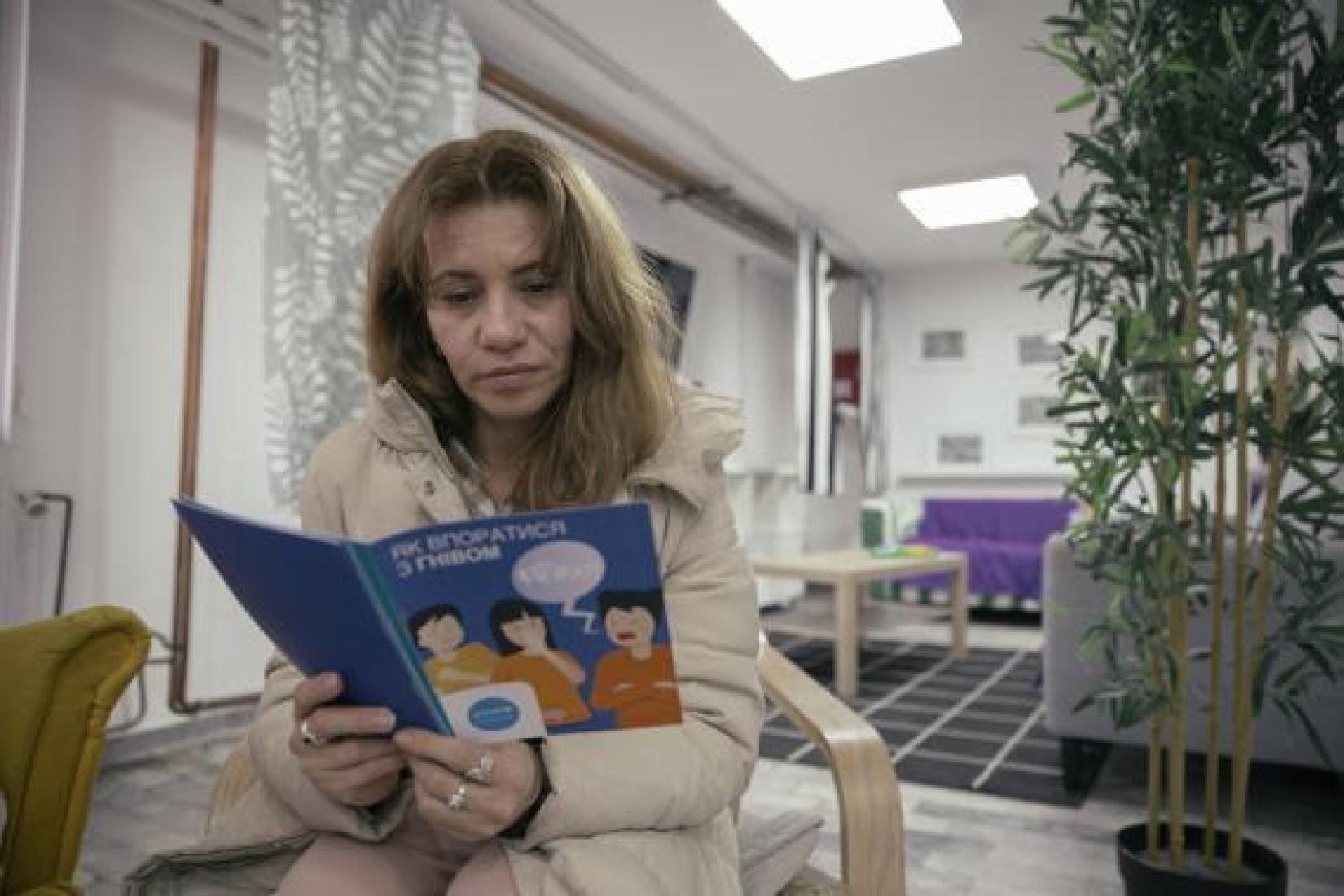
For children who were forced to leave their homes because of war, continuing their education is as important as it is challenging. That is why UNICEF, in cooperation with the Ministry of Education and the Commissariat for Refugees and Migration, is trying to enable them to get an education with as few difficulties as possible while adapting to the new formal education system, but also through non-formal education.
“UNICEF is primarily supporting the education system through capacity building. UNICEF has provided support from the very start and initiated this process. Teachers received a lot of trainings, mentoring support. Schools received support, they also receive grants, because all activities require additional funds, additional materials. Sometimes it’s also necessary to translate class materials. UNICEF encourages and enables cooperation between stakeholders and encourages the involvement of parents. This is important, because refugee parents can be in a state of trauma and, sometimes, they are not able to keep track of their children’s education as they used to do in their country of origin. They also need support to learn about the school system, to get to know teachers and to talk to children and keep track, help and motivate their children, which is not easy for refugee families,” says Tamara Simonovic from the Group for Children and Youth Indigo.
Within the Asylum Centre and in cooperation with the Faculty of Philosophy in Nis, English language students are holding online English language course for the third year in a row now. As part of this initiative, a student-volunteer internship programme was established at the faculty; enabling students to carry out the mandatory teaching internship, as well as to acquire additional knowledge and develop skills for the teaching profession, through training and supervision. For these efforts, the Faculty of Philosophy has become one of the recipients of the prestigious international award given by the Tempus Foundation.
“Back in Ukraine, my English was not that good, but with the help of the online course, I improved my English. We talk only in English about interesting topics, so this means a lot,” says Beatris.
Seven-year-old Sasha also attends online English language workshops. She is proud that she learned to introduce herself in English. And when asked what she likes doing at school and at the Centre, she answers without missing a beat:
“Playing!”
Written by Jelena Terzic


